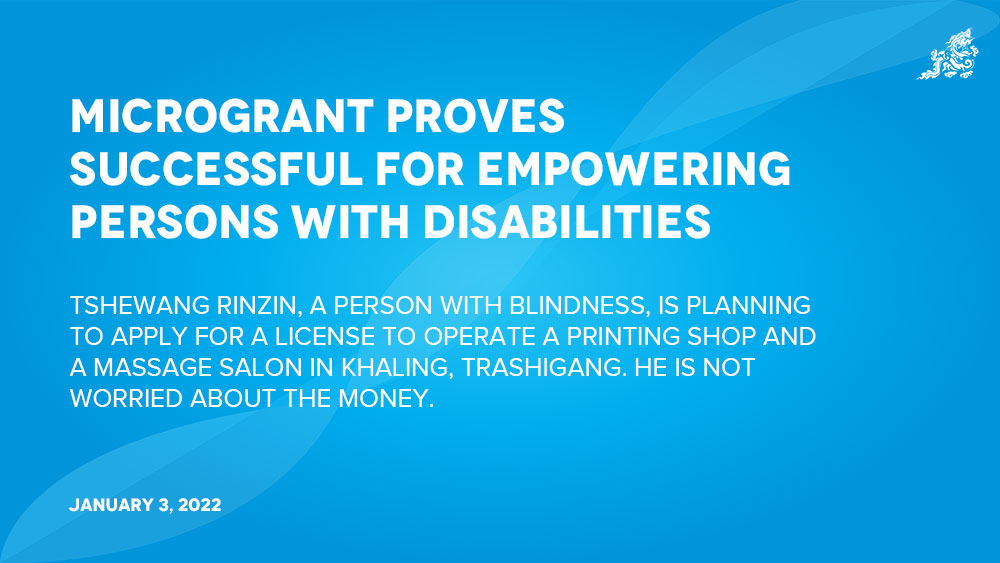Yangyel Lhaden
Tshewang Rinzin, a person with blindness, is planning to apply for a license to operate a printing shop and a massage salon in Khaling, Trashigang. He is not worried about the money.
The 22-year-old opened a shop after he secured a microgrant last year. A free shop space from his relative helped his business. Now he wants to expand his business.
The microgrant was part of a pilot project called “Understanding, Developing, and Supporting Meaningful Work and Adults with Disabilities in Bhutan: Networks, Communities, and Transition,” managed by Royal Thimphu College, the University of Birmingham, and the University of Minnesota.
The project started in 2019 for a duration of two years to study how these types of interventions could enhance social participation and employment opportunities if such facilities and support systems were made available for youth with disabilities.
The grant of up to Nu 50,000 included capital for start-up, school fees, transportation costs, and related costs for youth with disabilities. Tshewang Rinzin received equipment from the project for his printing shop.
Grant coordinator Sonam Tshewang said that most grant recipients were thriving despite pandemic challenges. “Microgrants modelling provides evidence how persons with disabilities (PwDs) can be supported through doable financial assistance.”
He said that with microfinance PwDs were able to seek opportunities which has helped them become independent. The project supported 19 youth with disabilities to pursue further education, training, employment, and entrepreneurship goals.
Group grants were provided to Special Education Needs students from Tendruk Central School, Samtse for the purchase of laptops, and another group of youth with disabilities who were trained in multimedia at Changangkha, for the purchase of equipment.
Sonam Tshewang said that recipients used their grant resources to purchase IT equipment and accessories, open print and tailoring shops, enroll in technical training courses, and establish food businesses.
Tshewang Lhamo, 20, in Tendruk Samtse is going to start a vegetable and fruit drying business. She recently received a dehydrating machine through the project.
In 2012, Tshewang Lhamo injured her spinal cord in an accident and has been walking on crutches. After completing Class 12 in 2019, she has been at home. Tshewang Lhamo said that her proposal was to start a drying business because she would not be able to do other business owing to her disability.
However, grant recipient Sukrayj Sherpa’s printing shop in Dagana is struggling.
Sukrayj Sherpa said that he felt empowered when he started his business but at the same time two more printing shops opened. “I closed my printing shop because I could hardly get five customers a day.”
Sonam Tshewang said that modelling inclusive coordinators had helped the team understand how having such roles could help in building more inclusive societies.
“It facilitated youth with disabilities in developing individualised planning, seeking customised employment, and mentoring entrepreneurship,” he said.
The pilot project has also produced the first full-length documentary on PwDs in Bhutan, ‘Dreams of Birds Flying in the Sky’ directed by Arun Bhattarai which is currently being screened in various international festivals.


